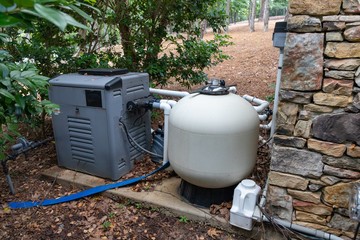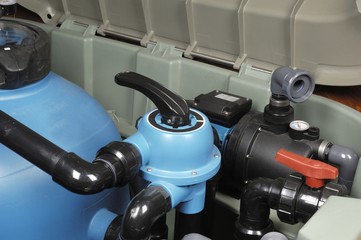Are Pool Heaters Expensive to Run?
Are Pool Heaters Expensive to Run?

Solar heat is Free, but not so consistent or dependable. A small number of days of cold and rainy weather can put you back to square one. Pool heat pumps cost only half as much to operate than gas heaters, even though prices have never been lower for Natural Gas, but pool heat pumps cost twice as much to buy new than gas heaters.
Factors Influencing Pool Heating Costs
- Kind and size of pool heater
- Average day-to-day air temperatures
- A covered or uncovered pool
- Heavy rains and high winds
- Price of Gas or electricity
- How warm (or hot) you accept it
Types of Pool Heaters
- Solar Heaters
- Heat Pumps
- Gas Heaters
Installation Costs for Each Kind of Heater
Installation cost is dependent on various variables like the size of the pool, location of pool equipment, cost per kilowatt-hour, and geographical location of where you are based. Here’s a rundown of the steps involved in installing every pool heater kind.
Solar Heaters
- Mount solar collectors on the roof, or construct a rack facing south.
- Connect PVC pipes from the pool filter to and back from the solar panels.
- Mount Solar Controller (non-compulsory, but recommended), install sensors.
- Two persons can efficiently complete most systems in 6 hours.
Electric Heat Pumps
- Needs a 220v dedicated electrical line from a 30-60-amp breaker. Must be bonded.
- Join pipes to the inlet and outlet of the heat pump and then back to the swimming pool.
- The overall cost is your electrician’s time and materials.
Gas Heater
- Natural gas heaters require a gas line from the gas meter to the pool heater.
- Propane delivery companies can provide an approximate or cost of installation.
- PVC tube from pool filter to inlet and outlet of the pool heater and then back to the return line.
- Join power into heater to operate control circuits. Heaters must be bonded.
Operation Costs for each Heater Kind
Solar Heaters:
Whatever it costs you to run the pool pump, which has to be on to push water via the solar panels. The heat itself, obviously, is free from the sun.
Heat Pumps:
Depends on your desired or recommended pool temperature in your area and how long you want to run your pump and filter to maintain the desired temperature. The amount you pay per kilowatt-hour for your electrical will also vary based on your location.
Gas Heaters:
Depends on the desired temperature of pool water and initiating water temperature. The time of running a pool pump and gas heater will assist in determining the total cost. A rule of thumb is that Gas Heaters consume 1 therm of Gas per 1 hour; per 100,000 BTUs and LP heaters consume 1 gallon of LPG per hour, per 100,000 BTUs of heater size.
Repair Costs for Each Heater Form
Solar Heaters:
Normally, the least often repaired and at a very minimal cost. If you have to develop a panel leak, there are simple ways to fix it. Solar Panels can last 15+ years before, ironically, the sun starts to break down the materials, and they become brittle.
Heat Pumps:
Very dependable, with less circuitry and sensitive components than gas heaters. The worst instance scenario on a heat pump is the heat exchanger or compressor failing. Fan bearings can require attention to older models. Newer units are solid-state circuitry; nevertheless, using a heater cover during winter is still a good idea.
Gas Heaters:
Many gas heaters do not need much maintenance, but much more than heat pumps or solar heaters. In their later years of life, the replacement of some components is not uncommon. Worst-case situations are damaged heat exchangers and burner trays. The use of a winter heater cover can assist extend their lifespan.

